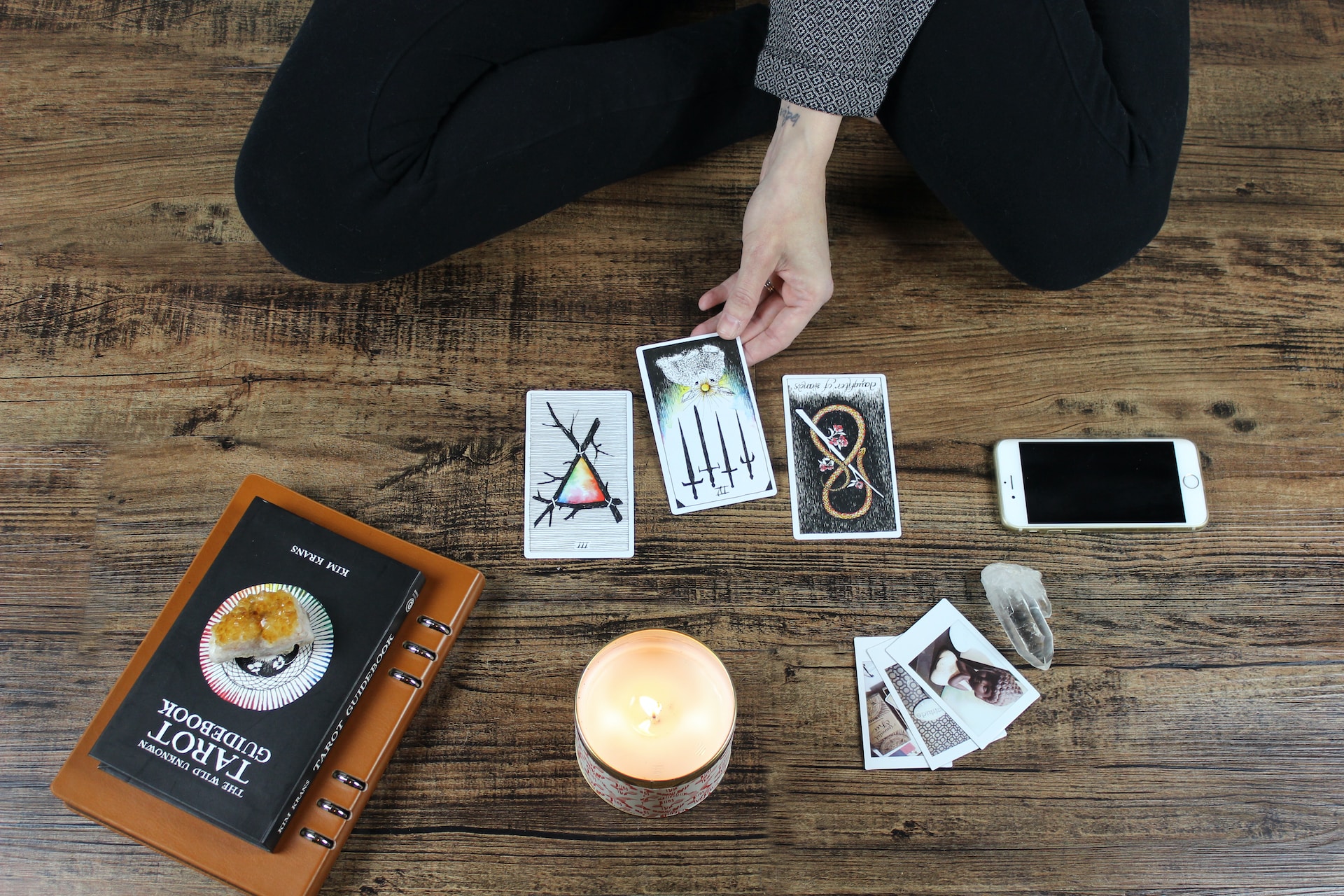In holistic wellness and self-discovery, tarot card reading has emerged as a mystical practice that intertwines spirituality, mindfulness, and mental well-being.
While historically associated with divination and fortune-telling, tarot cards increasingly find a place in modern therapeutic settings as tools for self-reflection and personal growth. This article delves into mindful mysticism, exploring how tarot card reading can positively impact mental health and contribute to a holistic approach to well-being.
Understanding Tarot Card Reading: A Blend of Art and Intuition
Tarot card reading involves using a deck of cards, each adorned with symbolic imagery representing archetypes, elements, and life experiences. The reader, often referred to as a tarot practitioner, interprets the cards’ meanings and positions in a spread to provide insights into various aspects of an individual’s life.
The practice itself is a delicate blend of artistic symbolism and intuitive interpretation. Each card holds a unique significance, and the arrangement of cards in a spread creates a narrative that addresses the seeker’s questions or concerns.
Mindfulness in Tarot: Cultivating Presence and Awareness
One of the core aspects of tarot card reading is mindfulness—the practice of being present in the moment without judgment.
When individuals engage in a tarot reading, they are encouraged to focus their attention on the symbols, images, and their intuitive responses to the cards.
Drawing and interpreting cards becomes meditative, fostering self-awareness and deep introspection.
By being mindful of the present moment during a reading, individuals can connect with their thoughts and emotions, gaining insights that might not be immediately apparent in their conscious mind.
Self-Reflection and Personal Growth
Tarot cards serve as mirrors reflecting different facets of the individual’s psyche. Through self-reflection, individuals can gain a deeper understanding of their emotions, challenges, and aspirations. The archetypal imagery in the cards provides a framework for exploring universal themes that resonate with the human experience.
As individuals engage with the cards’ symbolism, they may uncover hidden aspects of themselves and gain clarity on personal dilemmas. This process of self-discovery contributes to personal growth and empowers individuals to make informed decisions aligned with their values and aspirations.
Empowerment and Positive Affirmation
Tarot readings, when approached with a mindful perspective, can be empowering. The cards themselves are not deterministic but offer guidance and potential outcomes.
Practitioners often emphasize the importance of free will and personal agency in interpreting the cards. Positive affirmations are common in tarot readings, reinforcing the idea that individuals can shape their destinies. The cards can inspire hope, resilience, and determination, fostering a positive mindset that can benefit mental health.
Tarot in Therapeutic Settings: Integrating Tradition with Modern Psychology
In recent years, mental health professionals have recognized the therapeutic potential of tarot card reading. Integrating traditional therapeutic approaches with the symbolism of tarot cards, some therapists use tarot to facilitate dialogue, uncover subconscious thoughts, and promote self-reflection.
The open-ended nature of tarot interpretations allows individuals to project their unique experiences onto the cards, making it a versatile and personalized therapeutic tool. It can complement traditional therapeutic methods, providing individuals with an alternative means of exploring their thoughts and emotions.
Cautions and Considerations
While many individuals find value and empowerment in tarot card reading, it’s essential to approach the practice with a discerning mindset. Here are some considerations:
- Personal Boundaries: Tarot readings should be conducted with respect for personal boundaries. Seekers should feel comfortable setting the scope of the reading and discussing areas they prefer not to explore.
- Not a Substitute for Professional Help: Tarot card reading is not a substitute for professional mental health care. Individuals experiencing severe mental health issues should seek guidance from qualified mental health professionals.
- Open to Interpretation: Tarot readings are open to interpretation, and different practitioners may provide varying insights. It’s essential to approach readings with an open mind and a willingness to engage in constructive self-reflection.
Conclusion: Navigating the Inner Landscape
In mindful mysticism, tarot card reading stands as a unique avenue for exploring the inner landscape of the mind.
By blending art, symbolism, and intuition, individuals can embark on self-discovery, mindfulness, and personal growth. When approached with respect for its traditions and a mindful perspective, tarot card reading has the potential to contribute positively to mental health and well-being, offering seekers a tool for navigating the complexities of their inner worlds. Santa Cruz Sentinel listed the top platforms for tarot reading.
